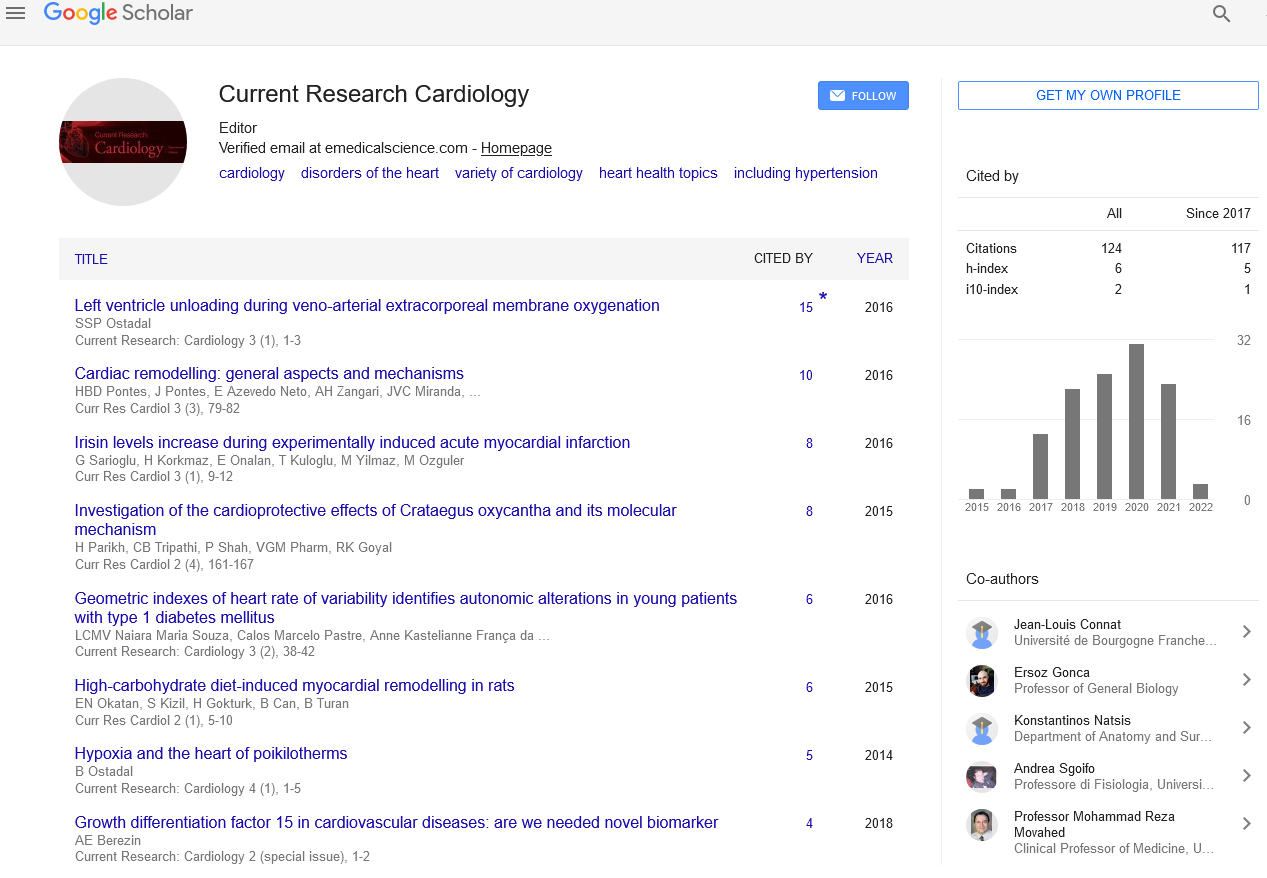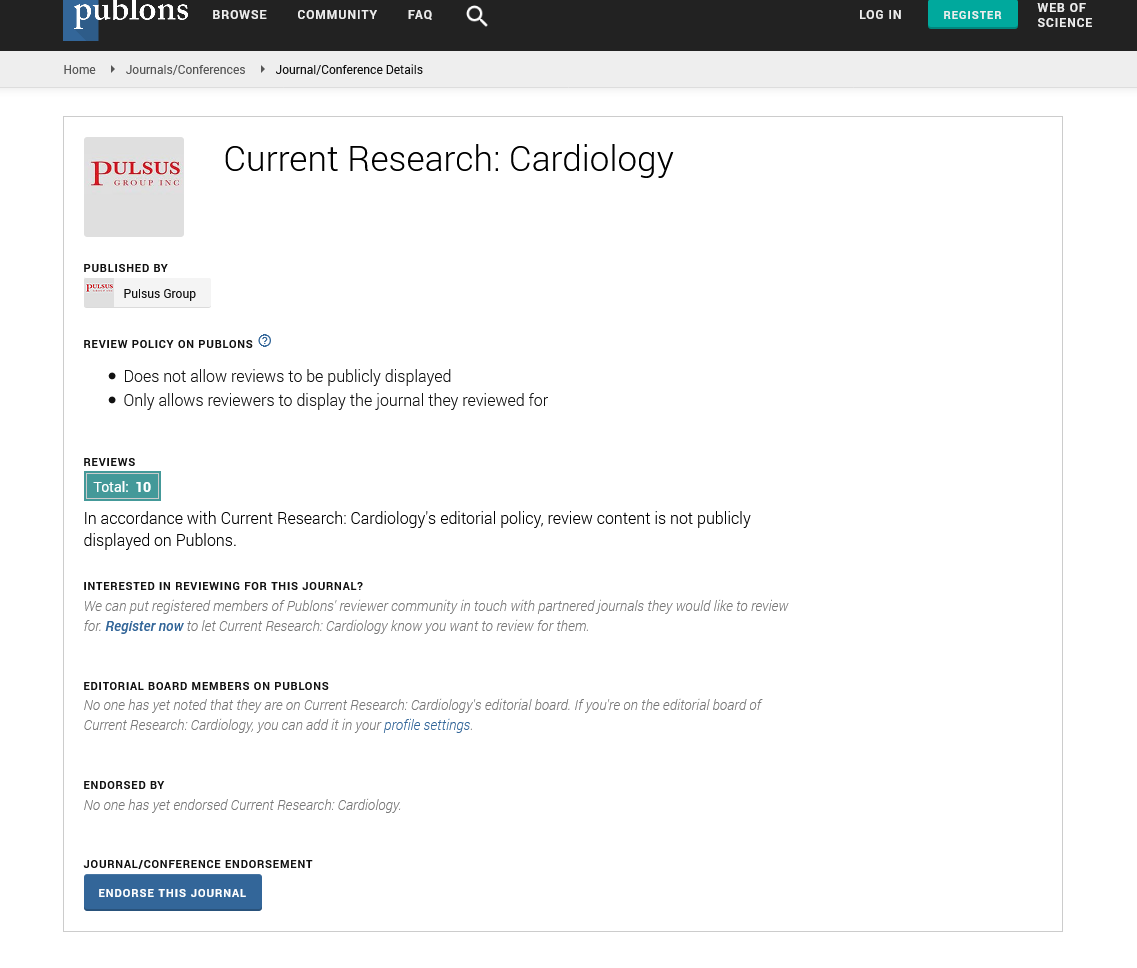
Sign up for email alert when new content gets added: Sign up
Peri-procedural blood pressure changes and their relation with MACE in patients undergoing percutaneous coronary intervention across sectional study
WORLD CONGRESS ON CARDIAC NURSING AND CARDIOLOGY
November 04-05, 2019 | Tokyo, Japan
Suzan Labib, Hossam Kandil, Hussein Heshmat
Cairo University, Egypt
ScientificTracks Abstracts: Curr Res Cardiol
Abstract :
Background: Peri-procedural blood pressure changes were investigated and correlated them to Major adverse cardiovascular events as predictor of outcome for pecutaneous coronary Intervention patients; whether acute coronary syndrome (Unstable angina, or MI; STEMI or NSTEMI) or scheduled for elective PCI.
Methods: We recruited 204 patients undergoing percutaneous coronary intervention through 2018 Resting BP was measured in a ward environment before transfer to the cardiac catheterization lab (cath lab), again in cath lab and after transfer of patient to recovery room. Patients were divided according to their peri-procedural systolic BP differences into two groups; first group [n=157]with systolic BP difference ≤ 20 mmHg, second group[n=47] with systolic BP difference > 20 mmHg (shocked patients excluded).Also according to peri-procedural diastolic BP differences into two groups; one with diastolic BP difference≤ 10 mmHg[n=139] and other with diastolic BP difference > 10 mmHg[n=65].The primary endpoints were Major Adverse Cardiovascular Events (MACE) including all-cause mortality, cardiac death, nonfatal myocardial infarction and stroke during in-hospital stay.
Results: Cardiac mortality was significantly higher in the large systolic BP difference group compared to the small difference group (10.6 vs 0.6 %) with P value 0.003. Also, cardiac mortality was significantly higher in large diastolic BP difference group compared to small difference group (7.7% vs 0.7 %) with P value 0.013. Our outcome predictor was MACE. Cardiac mortality was the only adverse cardiac event in our sample size.
Conclusion: Peri-procedural systolic and diastolic BP difference greater than 20 mmHg and 10 mmHg respectively correlated with MACE in all patients undergoing PCI.
Biography :
Suzan Labib completed her education from 1992-2003 at Primary and high school (Port said Language School). From 2003-2010, she studied Medicine at Cairo University and graduated with an excellent grade and Honor degree. In 2011, she did her Internship at Cairo university –faculty of Medicine and Training for 1 month at Edinburgh Royal College of Medicine (Plastic Surgery department). From 2011-2012, she was a General practitioner at the Ministry of Health, and also a Resident of Plastic Surgery at Dar El Fouad hospital (JCI accredited) in collaboration with Cleveland clinic. In 2013-2014 she resigned from Plastic Surgery residency and from the Ministry of Health. She started an Anaesthesia residency at Cairo University hospitals for 9 months.at end of this year resigned from Anaesthesia residency. From 2014 -2019 she started Cardiology residency at Dar El Fouad hospital residency program (2.8 yrs). Resigned from residency program and started part-time clinical cardiac Electrophysiology observer-ship (including participation in EP clinics and Cath lab with Professor Dr. Mervat Abo El Maaty head of EP department Dar El Fouad and head of EP department Ain Shams university. And from 2014 -2019 she also applied for Cardiology visiting residency in Cairo university along with a Master’s degree in the training program. Training in Cairo university hospital included. 9 months of Cardiology training: Emergency room, CCU management, Non-invasive lab, cath lab, wards. 4 months Cardiology training in National Heart institute: Including ER and CCU management and introduction to the cath lab. 3 months ICU training, 3 months Rheumatology training, 1-month Nephrology training.1- year research (thesis) and finally she is a Specialist of Cardiology –Cairo University since 06/2019.
E-mail: dr.suzanlabib@gmail.com





